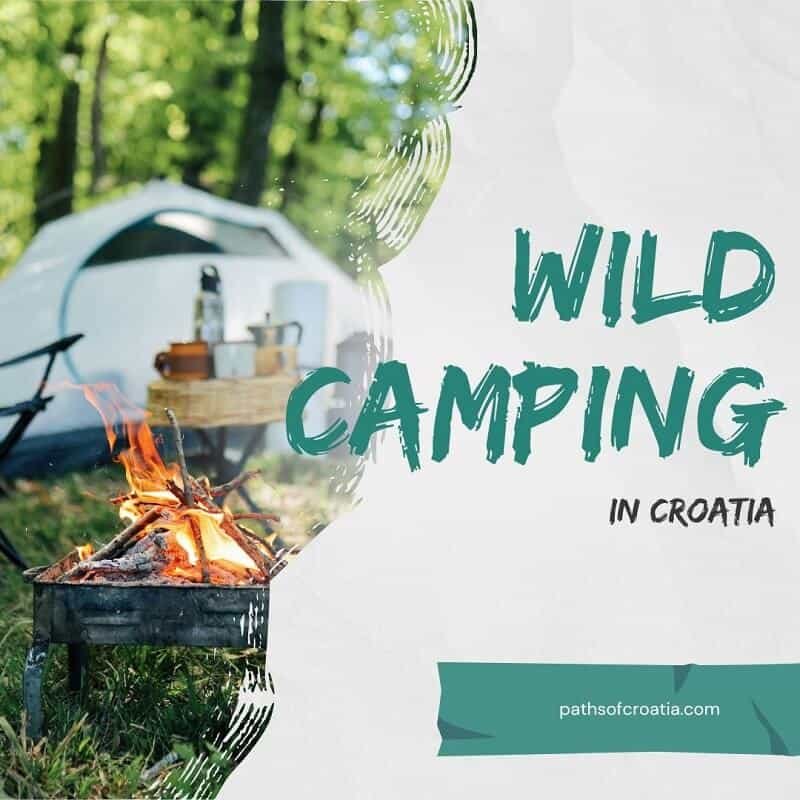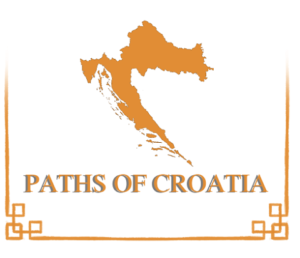
Croatia is known for its amazing landscapes, beaches, and forests, and camping outdoors is very tempting.
Securing a room in towns and villages or at a great camper spot in campgrounds is the most convenient way for accommodation, yet some people have a thing for wild camping.
After all, wild camping saves money and sometimes it’s difficult to organize a better accommodation when a sudden change in plan overcomes your organization abilities.
Let’s explore what the laws say about wild camping in Croatia, what’s there you can do about it, and related questions such as safety risks.
Is it illegal to wild camp in Croatia?
Croatian law states that any form of wild camping such as placing a tent, parking a camper, sleeping in a car, or sleeping in any public area not designated for camping is prohibited.
The law doesn’t differentiate between different types of wild camping so it’s difficult to say whether some form of wild camping is fine and other isn’t.
Croatian law is tailored in a way that all tourists and travelers stay within designated areas whether it’s camping or spending a night in a room.
This allows for better control of resources, and better safety for people and nature.
However, as a Croatian, I have seen everything and can give you a couple of unofficial pieces of advice regarding various scenarios when it comes to anything considerable as wild camping.
Can you sleep on the beach in Croatia?
During the summer months, Croatian beaches are full of people during the day and almost empty during the night.
That said, popular beaches can still be full of people during the night as summer events and parties take place, but the majority of smaller, less popular beaches are empty.
Small groups of people sometimes go swimming and drink beers at those smaller beaches and regularly spend nights there.
Has anyone called authorities and reported the night sleepers on those small beaches? If so, then very rarely, but from my experience literally never!
Thus, if you want to enjoy the sunset at the beach and then fall asleep and continue the journey tomorrow, I doubt anyone would mind.
Bear in mind to avoid popular beaches with plenty of people as sometimes they might get checked by the police patrol who could give you unnecessary questioning.
Can you sleep in your car in Croatia?
Falling asleep in a car is sometimes the easiest solution, but it’s illegal to sleep in a car in Croatia per law.
Tourists and travelers are expected to reside in an official accommodation, and a car is considered only as a transportation device.
Sleeping in a car anywhere down the roads or in nature can put you in trouble if someone reports it or if the police catch you during a routine control.
However, taking a nap between driving long distances is recommended and allowed. You can always fall asleep on rest sites near Croatian roads to secure safe driving.
The only issue is if you park somewhere near camps, towns, villages, and beaches where you could have easily found accommodation overnight instead.
So in conclusion, taking naps to regain energy to continue driving is allowed and highly recommended! Just bear in mind that replacing the primary accommodation overnight by sleeping in a car can be seen as a problem.
Why is wild camping in Croatia forbidden?
Landmines
There are still landmines occupied fields in Croatia which are a danger to hikers and nature enthusiasts.
While the majority of Croatia has been demined after the ’90s independence war, certain rural areas aren’t considered safe as a minority of landmines are still spread in the ground.
These areas are hardly accessible, and obvious warning signs are put at the entrances, yet there have been cases of people losing their lives.
To ensure there are no such cases in the future, Croatian authorities forbid wild camping in nature as that perfect spot for a tent deep in the woods could be the death spot.
Littering
Littering is a huge problem and there’s an increased risk of littering when people camp and party in the woods.
If wild camping was legal, more and more people would venture into the woods which would create a total mess.
While a few tents aren’t a problem, wild camping would likely become a trend.
If only one person in 500 would be irresponsible, and there were 100 000 people in the woods every month, it would mean 200 extra persons leaving their mess deep in the forests which could easily accumulate over a year.
There would need to be more cleaners and volunteers to patrol the woods and eventually, it would be difficult to stop the littering from a massive spread as cleaning the forest of trash is more difficult than cleaning the streets.
Wildfires
If littering weren’t a problem, wildfires certainly would be.
The example of 1 person in 500 leaving a single piece of trash is nothing compared to even a single person in 50 000 starting a wildfire.
A single instance of wildfire can mean unrecoverable damage to the local flora and fauna, so reducing the odds of wildfires to a minimum is essential.
Croatia is known for having dry seasons during summers, and wildfires aren’t a rare misfortune.
Wild animals
Wild animals such as bears, wolves, and others might not be a great danger but are a danger nevertheless.
Croatia is very safe when it comes to wild animals as there are rare animals that will hunt you and want to hurt you.
However, there’s always a possibility of bumping into a momma bear with her cubs, horned vipers await on the rocks and trees in some areas and nasty wild pigs like to charge everything in front of them.
Nice accommodation in the town suddenly sounds like a better option.
Environmental dangers
No matter how many times it’s repeated, some tourists ignore the warning and do weird things such as hiking Croatian mountains in flip-flops with a single half-liter bottle of water.
Nature is to be respected, and if you ever hiked in life you probably know how important it is to properly organize.
Inviting more people to spend nights in nature would cause more problems for rescue teams.
Visitors stay must be registered
According to the law, the owner of a holiday home, suite, or apartment must register all persons staying in the accommodation in the eVisitor system within 24 hours of their arrival. Furthermore, he must also deregister them on the last day of their visit.
So, it’s important that a visitor is officially registered by the police during their stay in Croatia whether the visitor stays at a hotel, with family, with friends, or at camp.
Thus, as long as you are registered in Croatia you are safe to get loose on the road, whether you’ll attempt wild camping or seek official campgrounds is on you.
I personally see nothing wrong with falling asleep in a car by the road if that’s the only option, and who can stop you from accidentally falling asleep after a good day of sunbathing on a beach or in a hammock?
